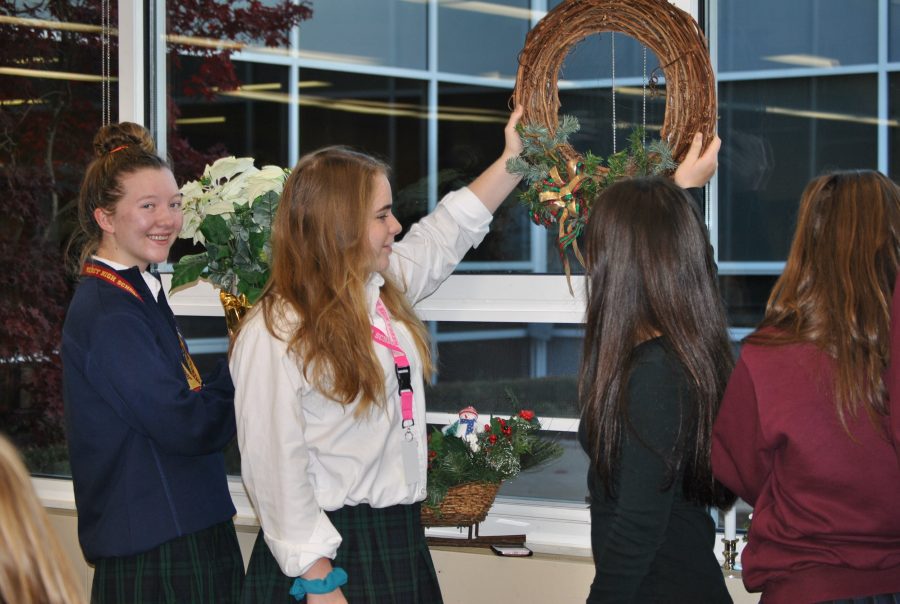Should Santa visit public schools?
As Christmas draws near, Mercy students can be seen growing more anxious and excited. Lights and decorations adorn most rooms and Christmas music echoes through the halls. However, a seemingly never-ending debate is whether or not Christmas should be celebrated in public schools across the nation. While it is common for elementary and middle schools to have “holiday” parties, the well-known images of ornament-adorned trees and string lights are typically avoided and replaced with more neutral, wintery decorations. The topics of Christmas and religion are carefully avoided altogether in many cases. Despite its obvious spiritual background, Christmas, along with other religiously-affiliated holidays, should be acknowledged and celebrated in public schools.
It is entirely possible to separate some of the traditional backgrounds of Christmas, regarding the birth of Christ and the true religious aspect of the holiday, from the other, more modernized means of celebration. These include what junior Sydney Price consider to be more common and widespread ideas that Christmas inspires.
“Focusing more on giving gifts and giving back to the community can create a more childlike version of Christmas,” said Price. “Acknowledging those aspects can turn [Christmas] into more of a universal celebration.”
Christmas is also a highly celebrated holiday that has become, to the dismay of many, a commercialized celebration. However, this disconnected way of celebrating Christmas has the ability to change the way that schools that are not affiliated with religion talk about and commemorate the holiday. It is not a forced lesson in religion nor does it have to be.
“My little sibling’s public school celebrates Christmas, although some people don’t participate in the decorating or the parties,” said junior Hannah Blakey. “It should be a matter of choice, but should also steer more towards the family and community aspects of the holiday.”
Many Mercy students previously attended public schools that were no less than wary of discussing specific holidays. However, it is important to remember that Christmas (along with Hanukkah and Kwanzaa) is celebrated by many students and teachers, and it should not be placed on a list of taboo subjects. There is no need to discuss one’s religious orientation when celebrating such holidays, as the more spiritual end of the commemoration can be saved for each student to participate in at home. Instead, schools can embrace the natural joy of celebrating with others.
“It seems like all Mercy students sort of come together in celebration of such an important holiday,” said junior Alexa Rybicki. “It makes it a very joyful time of year.”
Christmas is not meant to be a quiet or secluded day that is confined to one family or person. It is an entire spirit that fills communities and lends itself to adaptation when necessary, as in the case of schools unlike Mercy and other religiously-affiliated schools. Christmas is a way to bring people together, especially those from different backgrounds and beliefs in settings such as spiritually diverse schools. Christmas promotes feelings of love and peace, which can be enjoyed and spread by anyone.
“The atmosphere at Mercy is just joyful in general around Christmas time,” said Rybicki. “Everyone seems to be in higher spirits and the decorations around the school just put me in a good mood when I see them.”
Although public schools are obviously different in terms of religious affiliation, the meaning and effects of such celebrations are the same.
“With so many different religions within such a diverse country, it can be hard to decide what is okay to celebrate,” said Rybicki. “However, Christmas is a holiday that is easy to separate from its religious background and one that teaches valuable lessons

